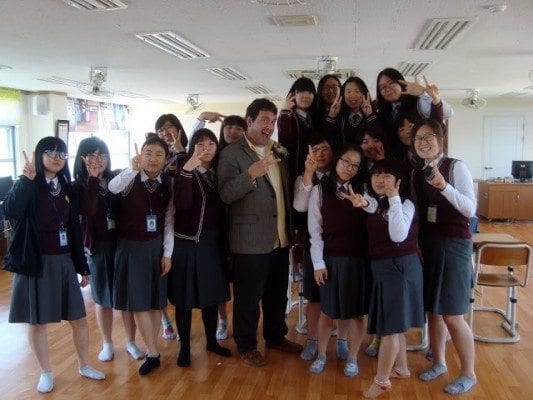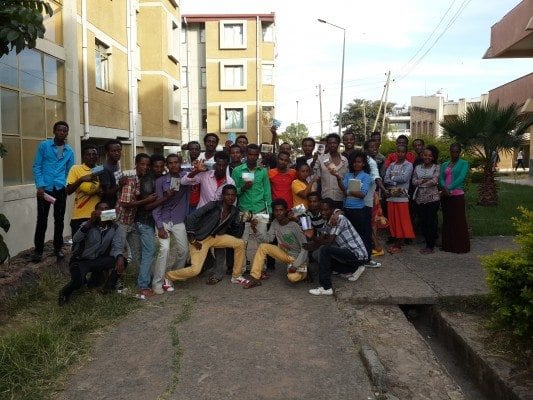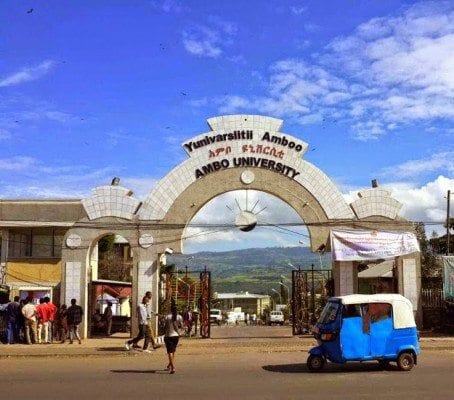From East Asia to East Africa: A Global Comparison on Teaching Abroad
Teaching in South Korea and Ethiopia
Words and shots by Matthew Jellick

I remember arriving in Korea back in 2009, new to the Asian teaching track but with previous educational-abroad experiences in both Europe and Mexico. Clearly things were much different here, with the directional aspirations of everyone from the government to teachers, and from parents to students focused on a more straightforward path, supplying the growth of the country through instructional achievement. From my perspective, there seemed to be numerous native-English teachers working in schools across Korea, from primary through the university system, not to mention the private academies which were flush with people from the U.S., England, South Africa, Ireland, and more, sharing their language through a variety of differing methodologies. Yet it wasn’t necessarily the directive from the front of the classroom which was propelling the foundations of learning in Korea, it was the collective attitude on behalf of the students, parents, and staff which lent itself towards a strict environment where English was not merely being learned as a “second language” it was being understood as a means of global competence, helping to bring Korea to the forefront of regional and international importance.
Over the course of five years, I was able to navigate the educational systems from Hagwons to public schools and from universities to private companies, all of them understanding the opportunities which existed through English attainment, be it as a means or an end. Education is a right but it’s also a business, and within Korea this creates a competitive nature which in turn oftentimes deviates from the objectives initially set forth through learning. Salary negotiations, teaching to the test, and an overabundance of materials are visible signs which can cloud the path towards sustainable learning, obscuring the goals of fundamental education.

After nearly five years in Korea, I switched both geographical and educational realities entirely, moving to the East African country of Ethiopia to continue along my own personal teaching route. Looking for something completely different, I found it through a Fellowship Program which places English educators in developing nations, working in conjunction with local universities to further their department’s progression towards sustainable teaching. With different sets of circumstances affecting learning outcomes, it is far from the situations encountered in Korea. Issues such as the lack of electricity and internet connectivity within the classroom have replaced the trivial notions of too many smartphones and malfunctioning smartboards. Education in Ethiopia is more survival than business, with little to no private academies to secure high test scores, as in fact, students don’t even choose their major or university, the government does. Development on many levels is of continuous peril here, and it is my hope that through involvement within the educational field, I am able to share ideas and lend support where needed.

A different perspective on teaching, learning, living, and loving expands our understanding from where we have come, as well as where we are going. My view of the Ethiopian education system is to a certain extent tinted with hues I picked up while teaching for five years in Korea. Likewise, wherever I go next, those experiences too will be affected by my realities here in East Africa, the Rift Valley acting as a gateway to the future, while forever remaining a composite of the past. There are times I long for 5G connectivity in a classroom with an equal number of desks as there are students, but other times where I admire the simplicity of a pencil and a scrap of paper, transcribing words from a chalkboard. Education is cultural, and the opportunity to experience it in varying countries adds to the complexity of learning, even if it is I who am the teacher. I am indebted to Korea for shedding light on their way of learning, and similarly grateful to Ethiopia for adjusting the dim, allowing me to see it through a different brightness…



